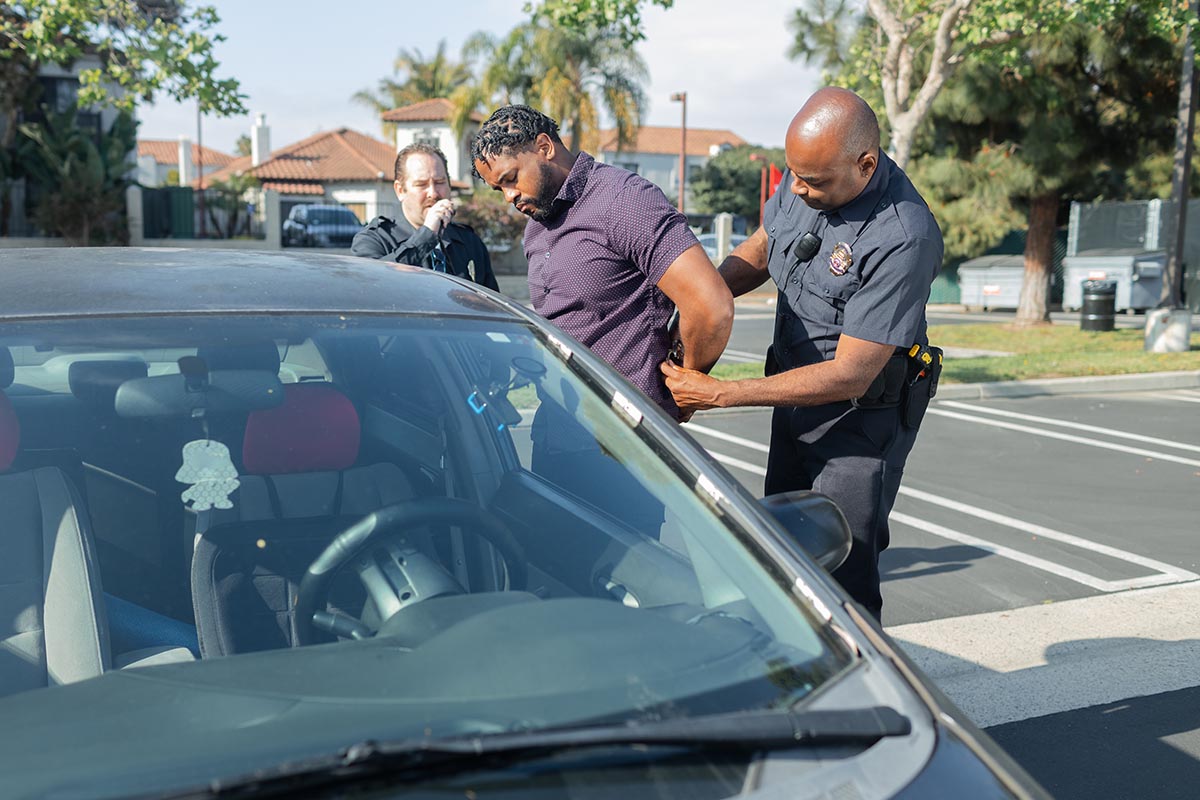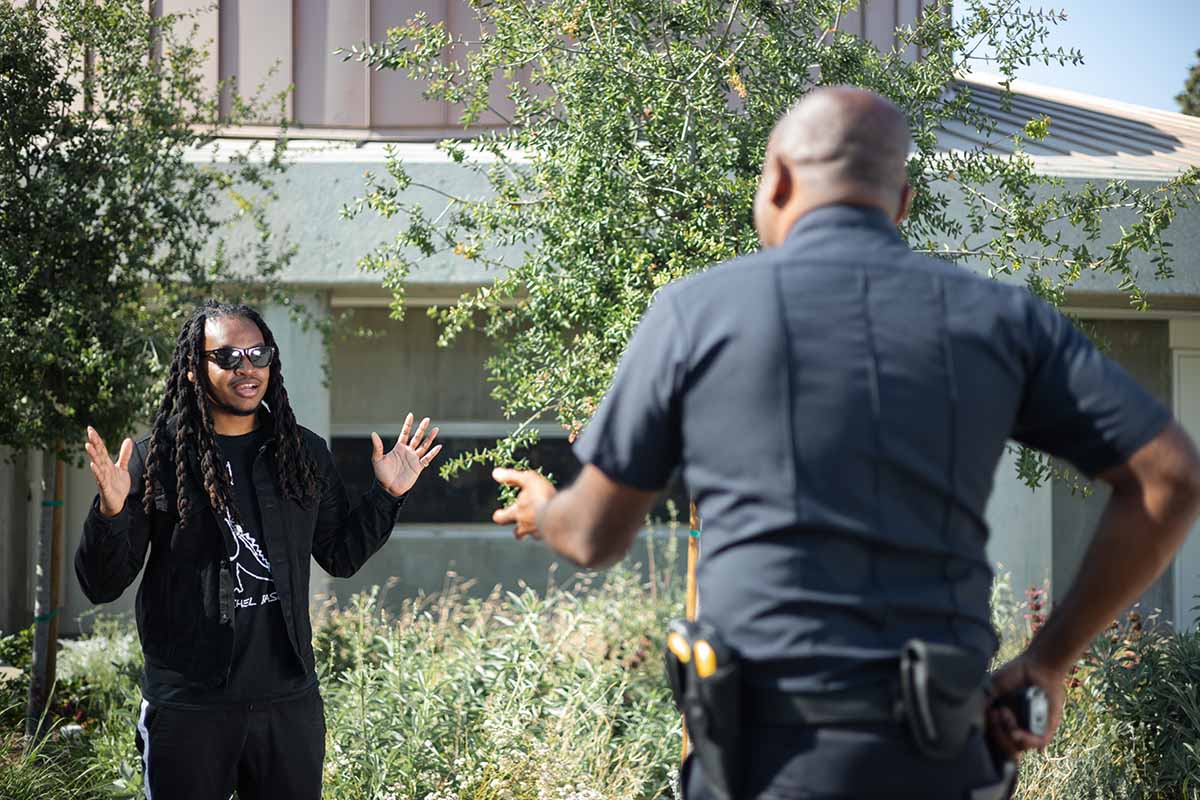What to Remember If You’re Arrested
✨Key Points
- Stay Silent: You have the right to remain silent—use it to avoid self-incrimination.
- Ask for a Lawyer: Always request legal representation before answering any questions.
- Stay Calm and Document: Keep a cool head and record everything for your defense.
Being arrested can be one of the most frightening and stressful experiences of your life.
It’s crucial to understand your rights and the process that will follow whether you’re innocent or guilty so you can protect yourself and make informed decisions.
Facts To Know When Arrested: You Have The Right To Remain Silent
When you are arrested, remember that you have the right to remain silent.
According to the Fifth Amendment of the United States Constitution, no one can be forced to be a witness against themselves.
This means you do not have to answer any questions from the police or investigators unless you choose to.
As defense attorney John Smith from Smith & Associates notes,
Invoking your right to remain silent is not an admission of guilt—it’s a wise step to protect your rights.
This is important because anything you say can—and likely will—be used as evidence against you in court.
Even if what you say is true, it can be twisted or taken out of context, opening you up to questioning that might lead to unintended self-incrimination.
Criminal justice expert Linda Rodriguez explains:
Even the most innocent statements can sound suspicious under cross-examination.
Another reason to remain silent is that what you say might be misinterpreted or even misquoted.
Stressful situations often lead people to talk without thinking carefully about their words or the consequences.
Trying to explain yourself to the police might actually do more harm than good.
It’s easy to forget this in the heat of the moment, especially if you’re scared or feel the need to prove your innocence.
However, experts strongly advise staying calm, silent, and asking for a lawyer. As attorney Mark Daniels says:
The first thing you should say is, ‘I want to speak to a lawyer.’ Then say nothing else.
Additional Tips to Protect Yourself
✅Ask for a Lawyer Immediately: The Sixth Amendment guarantees your right to legal counsel. Once you ask for a lawyer, police must stop questioning you until your lawyer is present.
✅Stay Calm: Being arrested is emotional, but try to keep your cool. Panicking or arguing with the police can make things worse.
✅Document Everything: If you can, write down everything that happens after your arrest, including names of officers and times of events. This can help your lawyer later.
By remaining silent and asking for a lawyer right away, you give yourself the best chance to navigate the legal process safely.
Remember, the police are trained to get information from you—even when you don’t realize it.
Staying silent protects you from accidentally making your situation worse and helps you avoid some of the most common mistakes in what not to do if you get arrested, like talking too much or trying to explain yourself without legal guidance.
Police Must Read You Your Miranda Rights
When you are arrested, it is important for you to understand your rights and what the police must do in order to protect them.
One of the most important facts is that the police must read you your Miranda rights.
This refers to a series of warnings that law enforcement officers must give before they can begin questioning someone who has been arrested or otherwise taken into custody.
The purpose of this warning is to inform individuals of their right to remain silent and their right not to be compelled into self-incrimination.
By understanding and applying these rights, individuals can avoid making statements or confessions which could later be used against them in a court of law.
In relation to the previous section, your Miranda rights include the following statement:
You have the right to remain silent; anything you say can and will be used against you in a court of law; you have the right to an attorney, and if you cannot afford one, one will be appointed for you.
This warning must be given before any questioning begins so that individuals understand their rights from the outset. Failure to read this statement to suspects is generally considered a violation of their constitutional rights and could result in evidence gathered during questioning being excluded from the trial.
You Can Request A Lawyer
Everyone has the right to legal representation during an arrest, so make sure to request one if at all possible.
Your lawyer will be able to advise you on how best to protect your rights, as well as represent your interests during proceedings associated with the arrest.
You Have The Right To Post Bail
Depending on the severity of an offense, individuals may qualify to post bail if they are arrested.
This allows individuals to remain out of jail until their court date, provided they appear as required and follow the conditions set by the judge, often with the support of legal help for those seeking bail.
However, bail amounts vary by offense and jurisdiction, and in some cases, the cost may be too high to cover personally—or release on bail may not be available at all.
Navigating the bail process can be confusing, especially for those dealing with it for the first time.
Knowing what to expect and what is required financially can make a significant difference.
For those unfamiliar with the process or facing financial uncertainty, understanding how to pay bond can help clarify what options might be available, including the use of bail bond services or payment plans.
Facts to Know When Arrested: You Have The Right To Refuse Searches
If you are pulled over by the police, keep in mind that you have the right to refuse a search of your vehicle or belongings without a warrant issued by a judge.
Of course, if an officer does produce a valid warrant then you must comply with them; however, this is rarely done in the case of a traffic stop.
You Have The Right To Make Phone Calls
When understanding what is an arrest record, it’s important to know that under the Sixth Amendment, individuals who are arrested have the right to make phone calls to contact family members, an attorney, or law enforcement personnel.
This right ensures they can arrange legal representation and notify others of their arrest if they choose to do so.
Knowing your rights is key when it comes to being arrested.
These six facts are essential knowledge for anyone who may find themselves in this situation, so remember them and stay safe!
By understanding these rights and following the proper procedures associated with arrests, you can be sure that your interests will be protected during proceedings.




















